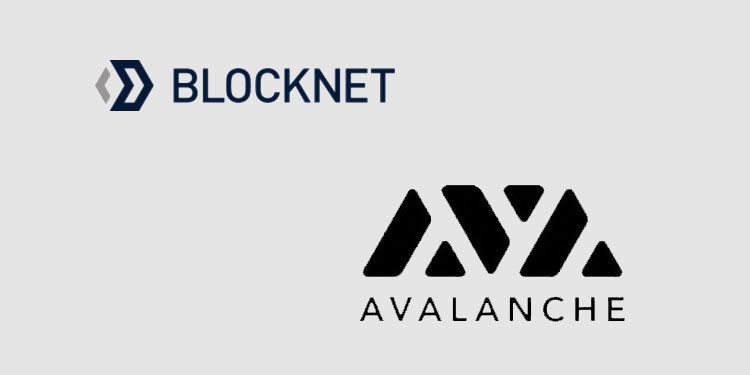Today it is was announced that blockchain application platform Avalanche will leverage the Blocknet protocol to make its chains interoperable with almost every other blockchain in existence.
The Blocknet is extending the power of Avalanche’s subnets with a decentralized indexing system; enabling dApps to use Avalanche contracts and transactions alongside those on any other blockchain in a trustless fashion.
In addition, Blocknet will migrate its own chain to Avalanche in order to be able to focus fully on interchain product development.
Upon completion of the Avalanche indexing system (expected to be completed by May 2021); developers building with Blocknet and Avalanche will gain Avalanche chain data in a decentralized and accessible form; as well as the ability to produce contracts on potentially every blockchain in existence.
After the release of the indexing system, the Blocknet will migrate to an Avalanche subnet.
Advantages
Since its inception in 2014, Blocknet maintained its proof-of-stake blockchain for its node governance and self-funding systems. Maintaining its chain has taken up the majority of developer resources–a significant tax on the development of its interchain products and services.
Avalanche is a provably secure protocol and platform, with rich DeFi and smart contract capabilities and a burgeoning developer community. By migrating to Avalanche, the Blocknet will be free to focus on its core priority: interchain product development. Moreover, no changes to the current tokenomics or protocol behavior need to be made in order to migrate.
“As a system designer who, in 2018, saw the fundamental advancement that the Team Rocket whitepaper represents, it is unsurprising to witness Avalanche’s explosive success in its first 6 months. We are thrilled to be migrating to an Avalanche subnet and to contribute our interchain technology to its ecosystem. Per consensum ad astra!”
– Arlyn Culwick, Co-Founder of the Blocknet
The Avalanche-Blocknet integration offers various benefits:
- With the launch of Blocknet’s decentralized indexing service for Avalanche, its developer/integrator communities will be able to build interchain dApps leveraging contracts on Avalanche, and interact with Avalanche subnets in a ‘trustless” way without hosting any chains locally.
- After Blocknet’s migration to Avalanche, its developer/integrator community will benefit from significantly more performant chain interactions and cross-subnet interoperability.
- Blocknet technology will become situated in a smart contract/DeFi ecosystem, greatly increasing the number of use cases within range, which will enable several unique value offerings to the Avalanche ecosystem.
- Instead of relying on the current Blocknet Core wallet, traders on its cross-chain exchange, Block DX, will gain a refactored XBridge library, supporting an optimal web-based Block DX user experience.
- Blocknet service node operators will benefit from a provably secure and radically more performant protocol.
- Wallets, tooling, node monitoring, and consensus- and blockchain-level code will be maintained by the broader Avalanche community, which amounts to a vast expansion of project resources.
- Blocknet development efforts will benefit from moving from a rarefied Bitcoin Core/C++ developer community to a burgeoning Go, Solidity, and Avalanche-experienced developer community.
Subnets
Avalanche already takes a significant step toward interoperability with its subnets. Avalanche subnets enable native, cross-chain interoperability between them while offering the high performance and decentralization of the Avalanche consensus protocols.
However, subnets cannot natively interoperate with non-Avalanche blockchains, leaving, for example, Ethereum’s multitude of contracts unable to respond to state changes on Avalanche and vice versa.
Interchain Indexing
Without “indexing services” — that is, services that make chain data accessible to developers — it can be very difficult for dApps to deliver what users want. Not only this, but the decentralization of the indexer itself is vital to maintaining the decentralization of the apps built with it.
The Blocknet will employ its XRouter technology alongside Avalanche’s Ortelius indexing tool to surface chain data via a GraphQL interface. The result: a decentralized indexing service consumable by dApps on any chain (or on no chain), enabling the orchestration of contracts into an “internet of blockchains.”
The Blocknet is not partisan about the blockchains it integrates. Instead of “bridging” two chains via a middle chain or signing group, the Blocknet supports the construction of proofs of arbitrary strength about the state on any chain.
XRouter’s proof system is scalable and off-chain. By being constructed locally, proofs scale independently of the blockchains whose data they deliver, and users are not required to adopt any chain that they do not wish to, and the security of their interaction is not dependent upon some middle chain’s security.






















